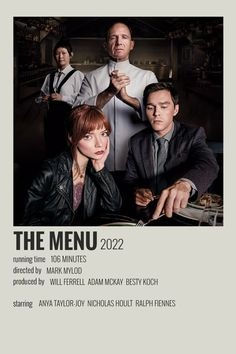WHEN THEY TASTED FREEDOM IN GUAVA ISLAND
- Thrishna Hosalli
- Aug 19, 2022
- 3 min read
Filmed in the vibrant streets of Cuba, ‘Guava Island’ is a film that conveys ideas of anti-capitalism and non-violent rebellion in the most simple yet brilliant ways. It reinforces the theory of the use of art as an instrument that unites people.
The plot of the film is a simple one that follows the life of an artist- Deni Maroon- played by the ridiculously talented Daniel Glover, and his dream to unite and liberate the people of Guava Island through his music. The film starts off with a short story- narrated by Rihanna who plays the role of Kofi- that explains the origin of Guava Island. It talks about how the island- initially a paradise- was destroyed by man’s greed and eventually turned into a place filled with factories run by a man known as Red Cargo (Nonso Anozie) who is a typical capitalist villain.
The reason this film is so different from others I’ve watched is that it conveys such heavy themes in the most simple and lighthearted way while still leaving a lasting impact on the viewers despite its short 56 minute runtime. The grainy and vivid quality of the film is used to give us a sense of nostalgia through the narrator, as the entire film is based on the narrator Kofi’s memories that she is sharing with her child. The movie makes a beautiful use of colours to portray different ideas in the film. The way the colour red is used for those who slave away under the capitalist society and blue is used by those who rebel against it (like the seamstresses in the factory who dance during work hours as a form of silent rebellion against their oppressors), and our main characters- Deni and Kofi use a mix of both colours to depict how they are stuck living in between two ideas. There is subtle symbolism throughout the film as well where there are eyes drawn in multiple places in the set in order to convey the idea that those in a capitalist work-obsessed society are constantly being watched by those with authority.
One day, when Deni goes to work he is captured and taken to Red’s house where he is told to cancel the festival he had been planning for the people of the island. Red says that the people cannot skip work on Sunday and therefore Deni must cancel his concert. When Deni refuses, Red gets angry and breaks his guitar and gives him money to leave the island. However, like the true artist he is, Deni decides to follow through with his concert. During his concert we get to see the people finally enjoying liberation as they merrily dance away to Deni’s tunes.
The next day when Red goes to the factories and the docks he realises that none of his workers showed up to work on that Sunday. He then finds all of them dressed in vibrant blues, singing and dancing as they bid farewell to Deni Maroon. The last scene of the movie is symbolic as it shows the people in a sea of blue moving past Red (dressed in an orange suit) almost indifferent to his presence. This is done to show us that art is something that transcends authority and that is exactly what makes it the most dangerous thing to those with power. As Red watches them move past him, he is met by Kofi ( Rihanna) wearing a bewitching blue dress (no really my jaw quite literally dropped) who says the words “we got our day”. Even though the people of Guava Island bid farewell to Deni Maroon, his art and his dreams were captured in their hearts, and they got to taste freedom, even if it was just for a day.
Hiro Murai’s ‘Guava Island’ is more than just a short film, musical or a visual album, it is an experimental project that aims to make us realise the importance and power of art in the society we live in today. It makes use of the talents of the Cuban people, giving it an authentic folklore vibe. The cinematography, soundtrack, themes, costumes, direction, dance sequences and artistry of ‘Guava Island’ makes it one of the most unique and brilliant films ever made. It leaves us with a bittersweet feeling but more importantly, it leaves us feeling hopeful that even in times of such oppression and conflict, we can find liberation and unity in something as beautiful as art.
IF YOU MADE IT THIS FAR THANK YOU SO MUCH!!
FEEL FREE TO LEAVE A MESSAGE, YOUR FEEDBACK MEANS EVERYTHING TO ME <33














Well- Written